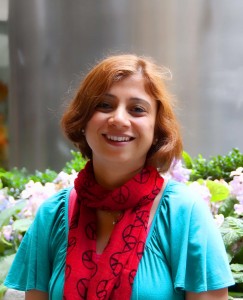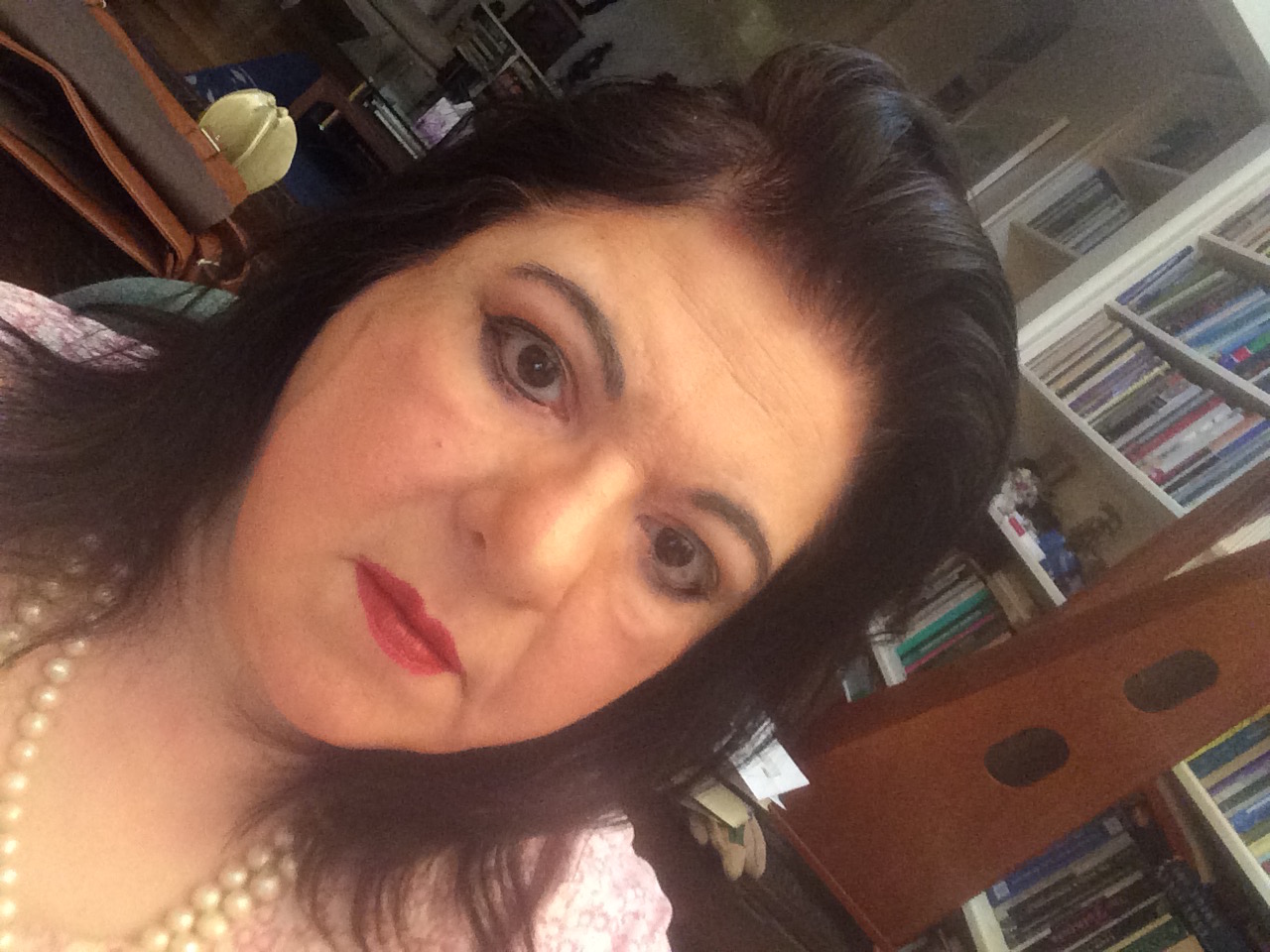When did you start writing poetry?
I want to say when I was in my pre-teens. Growing up, I always liked collecting diaries and scribbling in them, but I formally started dabbling in poetry when I joined my boarding school in Mussoorie, India. Of course, over the years, my voice and style (impacted by my experiences) have changed their course, but the foundation has been around for a while.
What was the first poem you ever wrote that you thought was good?
I am my own worst critic. I constantly push myself to insane limits. I always wondered if there would ever come a time when I would really like that one piece, written by me, for more than a day. It finally happened. My poem titled, “The Talisman,” from my upcoming chapbook of poetry, Kaleidoscope: An Asian Journey of Colors, made me pause and savor the depth of the words.
For me, this poem established the clarity in my identity. It voyages through the emotional and physical journey that I undertook many years ago. In the process of writing the lines, I went from being an immature, confounded, newly wed girl to a woman who prides her legacy and embraces all that comes with it. I carved out a separate space in my subconscious for pragmatism and sensitivity but at the same time allowed them to coexist in harmony. I promise you, this poem will resonate with many women.
Do you prefer writing poetry to other forms of writing, and if so, why?
I wouldn’t necessarily say that I prefer writing poetry. But I will admit that poetry comes more naturally to me than does fiction. Maybe because, for me, it is more immediate than fiction; it’s a reflection of what’s on my mind on a certain day or time. My poems and creative nonfiction pieces (blog & personal essays) are transparent–the issues and emotions consuming the writer inside of me. I am a straight shooter, and they allow me to be unreservedly candid. But poetry has its sacred place.
Could you please tell our readers what your collection is about, in no more than 100 words?
My book, Because All is Not Lost, is a chapbook of poems about grieving and loss. Grief, depending on the relationship with the one deceased, affects us differently. Often, in the process of grieving, one forgets that life is about celebrating those alive and not just mourning those who have moved on. This book tries to state that there is always hope for anyone coping with grief. Optimism and faith are the keys to overcoming the roadblocks life puts in our way. No one can tell us exactly how; the voyage has to be undertaken by each of us individually.
Poetry for me is so personal, unlike novels, you really get a sense of who the person is, would you agree?
Absolutely. I write both prose and poetry, but I feel poetry makes the writer a lot more vulnerable. Novels give you the opportunity to hide behind the mask of the protagonist and then convey the message. But with poetry, a writer is left exposed.
With that in mind what do you think your poetry say about you? As my husband teases me, my work indicates that I am “someone with a death wish.” Since I write mostly about issues, I would think my poetry shows empathy, timeliness, fearlessness, and honesty–my quest to make a difference in this world using words. I am extremely passionate about the richness of overall language, and I hope that comes across in my work. My friends, family, and readers have told me that my poems bring to light my compassion, philosophical nature, and sensitivity.
What makes a good poem?
Honesty, fearlessness, empathy, dedication, and, of course, a love for words. A good poem should be able to evoke a response from its readers.
In your respective collections you talk about women, motherhood, loss and grieving, family and growing up – such deep deep stuff. Overladen with emotions. Is writing poetry therapeutic?
It definitely is for me. When considering poetry, we forget that the poet’s culture and background affects how and what he or she writes. For instance, in the Indian society, the route of living in denial is preferred to the path of addressing a problem. But we forget that problems don’t go away on their own. Sometimes unsaid words manifest themselves into issues of epic proportions. That’s when poetry works as an impeccable outlet. It brings healing energy and closure with it.
What’s your favourite poem and who is your favourite poet?
My favorite poem is William Wordsworth’s “Daffodils.” I think, it touches on all of the human senses. The tone of that poem is so vivacious. You can feel the energy drown you. And I mean that in a good way. Though simple, the language is evocative. It allows you to visualize a plush, green place with dancing daffodils. It makes me want to dance. If you listen intently, the poem reads as a soothing lullaby.
Favorite Poet: I am a big fan of Nobel Prize winner and South American poet, Pablo Neruda. For me, the beauty in poetry is directly proportional to the depth and elegance of language used. And every single time I read his work, I mutter to myself, “Dude, how do you do that?” I think Neruda is a genius and truly gifted! The variety of styles that he conquered is unimaginable for most poets. When it comes to metaphors and similes, I don’t think there is anyone as talented as him. Despite his way with eloquence, Neruda was rightly called a “people’s poet.” I admire his philosophy. He once wrote, “Poetry is like bread. It should be shared by all, by scholars and peasants, by all our vast, incredible, extraordinary family of humanity.” It is incredible how he used the magic in his pen over sword in his battle for justice.
From your collection what do you think is your best work?
My favorite poem and the one I think is the best work from Because All Is Not Lost are different. I would have to say, “A note to the biggest thief in this world,” is probably the strongest poem in the collection. The reason I rate it so is because I can identify with the resilient attitude and undefeated tone of the poem.
Should a poet live a life of isolation?
I don’t think there is a “yes” or a “no” answer to this question. It’s more a matter of personal choice. Not all poets have the same personality; they have different needs to boost their creativity. Ultimately, it boils down to whatever helps you think and write better. Recognize it and embrace it.Having said that, for me, isolation (and an occasional glass of white wine) is key to writing poetry. While city cacophony and energy works well for fiction, with poetry, I need peace and quiet. I want to be able to hear my thoughts and connect with my inner core. The closer I am to nature, the freer and relaxed I feel. Words just come to me, literally. Also, I integrate my physical surroundings into my poetry, which means I need to be in tune with what’s around me. The only way I can my pay attention to my environment is when I am in isolation.
What advice would you give to an aspiring poet?
First, take a deep breath
Be sensitive and aware of your surroundings. It’s incredible how littlest of things (like a butterfly on a leaf or ants on a street) can become metaphors or lines in your poem. I would suggest carrying a journal on you at all times. Inspiration strikes when you least expect it. And when that happens, you want to be prepared. There is only so much that the brain can store for us.
As Lee Lacocca said, “The discipline of writing something down is the first step toward making it happen.” Discipline yourself and write everyday. And if possible, make that happen at the same time.
Start a writing group with 2-3 other poets. Weekly or monthly assignments can give you just the right amount of push. Once you’ve made the decision to write, stick to it. Write for yourself, first. Enjoy it. It might take time and a few failures, but you will ultimately find your footing. And there is no sweeter feeling for a writer than discovering his or her personal voice.
Believe in yourself because if you don’t, nobody will. Don’t take rejections personally. It might sound easier said than done, but believe me, it’s not impossible. Sometimes, things don’t work out, and it stinks. But it’s no one’s fault. Here is how I break it down: there are twenty-four hours in a day. You can either choose to spend time moping or putting the same energy into something positive.
I understand we live in an over-committed world, but aside from writing, make time for reading the works of other poets. Don’t let success every get to your head. Writing might be a big part of your life, but it’s not above your real world of friends and family. Never forget the folks who believed in you when you didn’t.
So, write, write, and write. Grab a copy of “Letters To A Young Poet” written by Ranier Maria Rilke. It’s a timeless masterpiece that every poet should read a few times.
Sweta Srivastava Vikram is a multi-genre writer living in New York City. She is the author of two chapbooks of poetry: “Kaleidoscope: An Asian Journey of Colors” and “Because All Is Not Lost” and the co-author of a poetry collection, “Whispering Woes of Ganges & Zambezi.” She has held several artist residencies in Europe and America and worked on collaborative projects with artists from Zimbabwe and Australia. She is a graduate of Columbia University. Her website is www.swetavikram.com. Follow her on Twitter @ssvik

